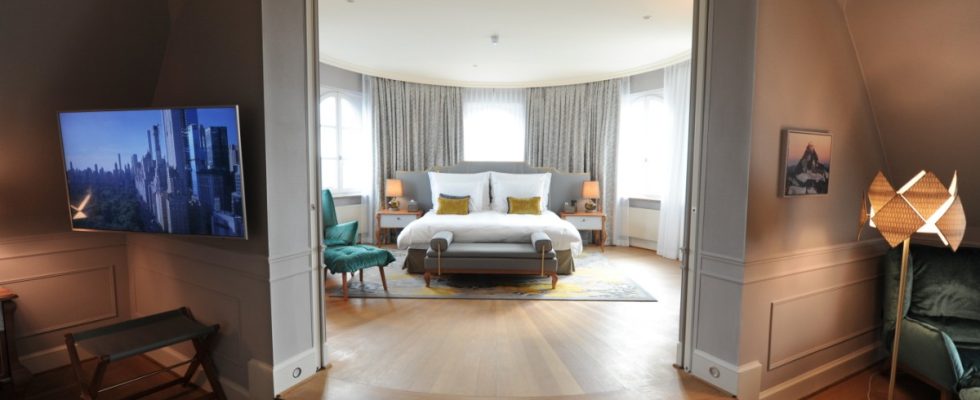It is the nature of crime to always be one step ahead of those who want to fight it. Where banks become more secure, ATMs are blown up, where very elderly people are familiar with door-to-door fraud, the trick of grandchildren using smartphones is growing. And where guests regularly steal furnishings, hoteliers become inventive. Hangers in hotel rooms often no longer have round hooks, so they cannot be used at home. Pictures are stuck on the wall. The small shampoo bottles have become rare anyway. But from the common thief, and one has to assume: the average hotel resident, nothing seems to be safe. This is shown by a survey of hoteliers regarding the most frequently stolen items.
The “Wellness Heaven” portal surveyed more than 700 hoteliers, mainly from Austria, Germany, Italy and Switzerland. Towels, bathrobes and clothes hangers are the most popular stolen goods. Now these are all things that, as a philanthropic normal citizen, you might think: It can happen, in the morning, in a hurry. Batteries that are removed, room numbers that are unscrewed and flowers that are wrapped could, even as a legal layperson, be assumed to be intentional. And by the time the piano is carried out of the lobby (happened in Italy), the stuffed wild boar’s head is taken off the wall (France!) and the bathroom fittings are unscrewed (yes, Berlin), then not only intent but more sophisticated planning is required.
However, there are cultural and economic differences among thieves. According to the survey, the Austrian is more likely to steal the coffee machine and the dishes, the Dutch are more likely to steal the light bulb, and in Italy, who wouldn’t have guessed it, wine glasses disappear more often than average.
The famous subtle differences are particularly evident between the star classes. Guests of four-star hotels, for example, take everyday items such as toilet paper and batteries with them. In five-star hotels, on the other hand, telephones, coffee machines and works of art are often missing after the guests have left. Tablet computers are particularly popular. Now the latter in particular are likely to be more common the more stars a hotel has.
Stylish minimalism – or prevention measure?
However, the theory of theft due to simple availability is undermined by a statistical detail: mattresses are much more likely to be stolen in higher-class hotels. The question arises whether presumably richer people have worse manners, which would be difficult to prove. Whether they feel that for a higher room price they are simply entitled to part of the furnishings. Or whether they – currently a crucial source of wealth – simply own more real estate that they are forced to furnish. Or, and this is the hoteliers’ explanation, whether the mattresses, which often cost several thousand euros, in hotels with more stars are so much better that it is simply worth it, even for wealthy thieves.
In any case, this survey casts the trend of recent years towards purist furnishings in a completely new light. In any case, the founder of a well-known design hotel chain explained when viewing a new house that the room was furnished in such a way that everything was first cleared out. And then I looked: What do you really need for your basic needs? Because it was agreed that the guest should feel safe and the room should be clean and quiet, these hotels rarely have a superfluous desk or the obligatory uncomfortable armchair in the corner. This is simply more chic and modern. So you can sell it as stylish minimalism – or as a preventive measure.
The hoteliers probably shouldn’t complain too much. The mini shampoo and the ballpoint pen are also formally the property of the hotel. But both are essentially produced for theft, and the brand is thus carried out into the world. And the opposite case is also difficult: If something is stolen from a guest in the hotel room, the hotel is usually not liable. From a purely legal perspective, this is considered a “general life risk”.

